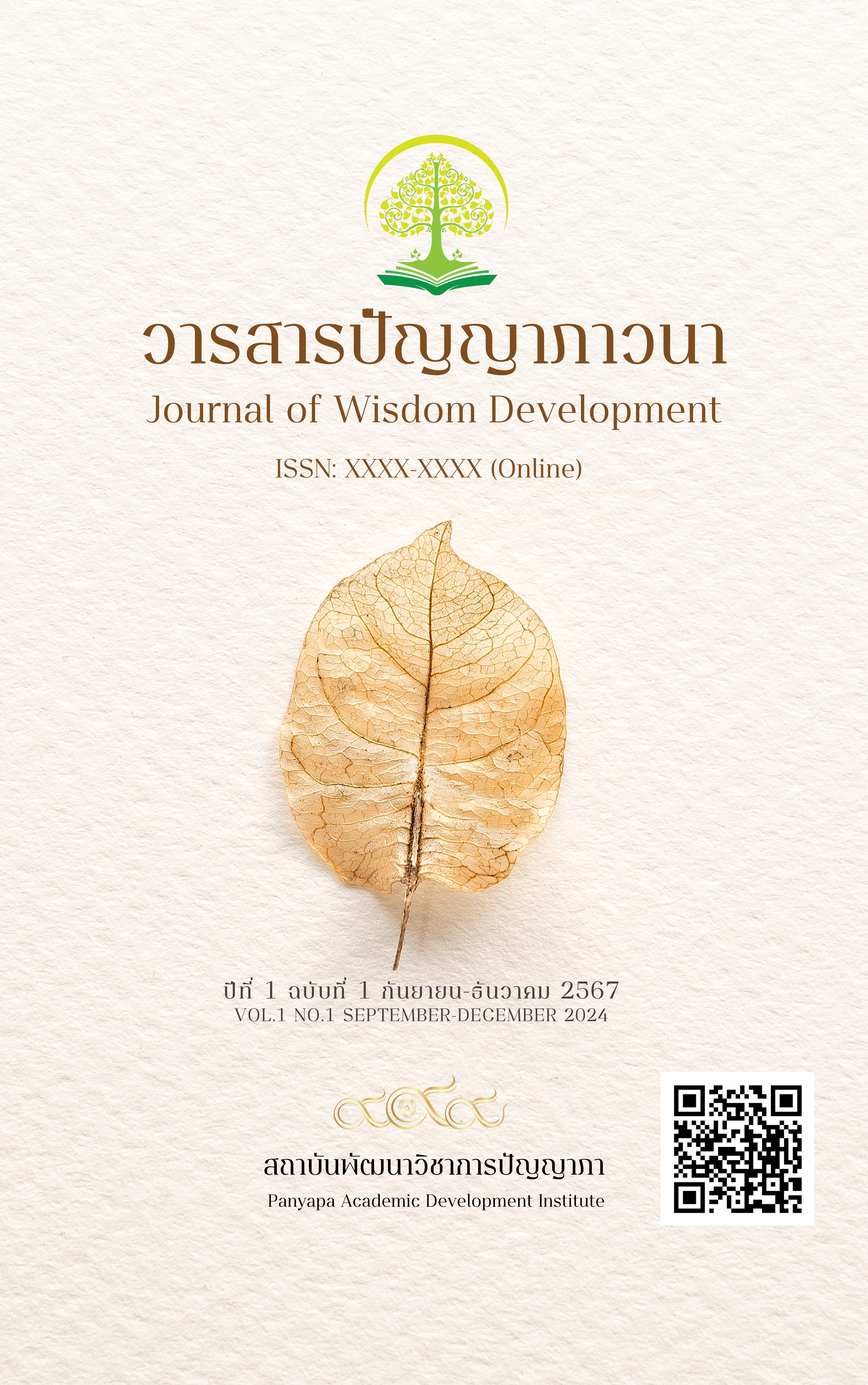Reimagining Higher Education: Universities as Open Integration Platforms for a Knowledge-Driven Society
คำสำคัญ:
Reimagining Higher Education, Open Integration Platforms, Knowledge-Driven Societyบทคัดย่อ
Globalization, technological advancement, and changing societal needs are reshaping the higher education landscape and forcing universities to take more flexible and interdisciplinary approaches. Institutions will need to adopt the Open Integration Platforms model to successfully navigate these changes and carry out their missions in a world that is changing quickly. About universities serving as open integration platforms for a knowledge-driven society, this paper explores the idea of reimagining higher education. According to the findings, universities' conversion into Open Integration Platforms marks a significant change in higher education by addressing the drawbacks of conventional models and seizing the changes brought about by technological advancements. For education to become more inclusive, collaborative, and adaptable to the needs of a diverse global population, this evolution is imperative. Universities can contribute significantly to societal development and innovation by collaborating with external partners, breaking down internal silos, and fostering interdisciplinary collaboration. These actions can increase universities' relevance and impact. Higher education institutions' ability to maintain stability while embracing innovation will be essential to their ability to carry out their primary mission of disseminating knowledge. Higher education's future rests in its ability to change and grow, establishing itself as a dynamic force in the creation of a society that is more inventive, fair, and informed.
เอกสารอ้างอิง
Altbach, P. G., Reisberg, L., & Rumbley, L. E. (2019). Trends in global higher education: Tracking an academic revolution. Springer.
Anderson, T. (2008). The theory and practice of online learning. Athabasca University Press.
Ankrah, S., & AL-Tabbaa, O. (2015). Universities–industry collaboration: A systematic review. Scandinavian Journal of Management, 31(3), 387-408.
Audretsch, D. B., & Belitski, M. (2017). Entrepreneurial ecosystems in cities: Establishing the framework conditions. Journal of Technology Transfer, 42(5), 1030-1051.
Barnett, R. (2021). The ecological university: A feasible utopia. Routledge.
Barrows, H. S. (1996). Problem-based learning in medicine and beyond A brief overview. New Directions for Teaching and Learning, 1996(68), 3-12.
Boulton, G., & Lucas, C. (2011). What are universities for? League of European Research Universities (LERU).
Ehlers, U.-D. (2011). Extending the territory: From open educational resources to open educational practices. Journal of Open, Flexible, and Distance Learning, 15(2), 1-10.
Etzkowitz, H. (2008). The triple helix: University-industry-government innovation in action. Routledge.
Frodeman, R. (2017). The Oxford Handbook of Interdisciplinarity (2nd ed.). Oxford University Press.
Guri-Rosenblit, S. (2018). Digital technologies in higher education: Sweeping expectations and actual effects. Nova Science Publishers.
Guri-Rosenblit, S. (2018). Digital technologies in higher education: Sweeping expectations and actual effects. Nova Science Publishers.
Klein, J. T. (2010). Creating interdisciplinary campus cultures: A model for strength and sustainability. Jossey-Bass.
Peters, M. A. (2020). Open education and education for openness. Open Review of Educational Research, 7(1), 1-10.
Siemens, G. (2021). Connectivism: A learning theory for the digital age. International Journal of Instructional Technology and Distance Learning, 2(1), 3-10.
Suber, P. (2012). Open access. MIT Press.
Thammasat University. (2022). 88 Sandbox: Innovation and Startup Ecosystem. Retrieved from Thammasat University website.
Thomson, G., & Wrigley, C. (2019). Design thinking, design theory, and design practice. The Design Journal, 22(1), 55-70.
Weller, M. (2014). The battle for open: How openness won and why it doesn’t feel like victory. Ubiquity Press.
Yuan, L., & Powell, S. (2013). MOOCs and open education: Implications for higher education. JISC CETIS, 3, 1-23.






